We all know that human treats like chocolate can be dangerous for dogs, and to keep cleaning products away from curious pooches. What many of us don’t know is that the great outdoors poses just as many risks. In fact, flowers and plants that seem pretty and harmless to humans can actually be toxic to your four-legged friend.
If you’re currently asking yourself “what plants are toxic to dogs?” read on, as we run through the 10 of the most common plants dangerous to dogs, how they can harm your pet, and what you can do about it.
Daffodils
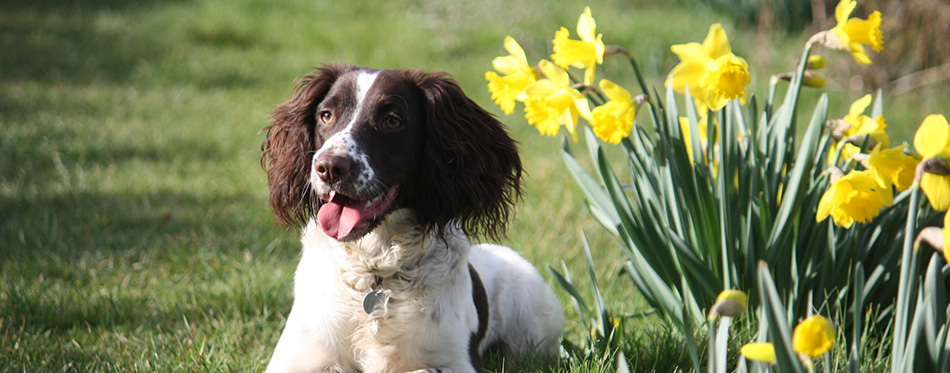
First on our list of poisonous plants for dogs is that springtime favorite, the daffodil. Daffodil bulbs are particularly harmful for your pooch, and can cause symptoms such as nausea, vomiting, diarrhea, and skin irritation.
Because these symptoms look similar to a simple stomach bug, daffodil poisoning can sometimes go undetected. As innocuous as the daffodil might seem, though, this type of poisoning incident can be fatal. If your dog displays any of the symptoms above, consider whether they may have ingested a daffodil, and seek veterinary attention immediately if you think this is possible.
Castor Bean
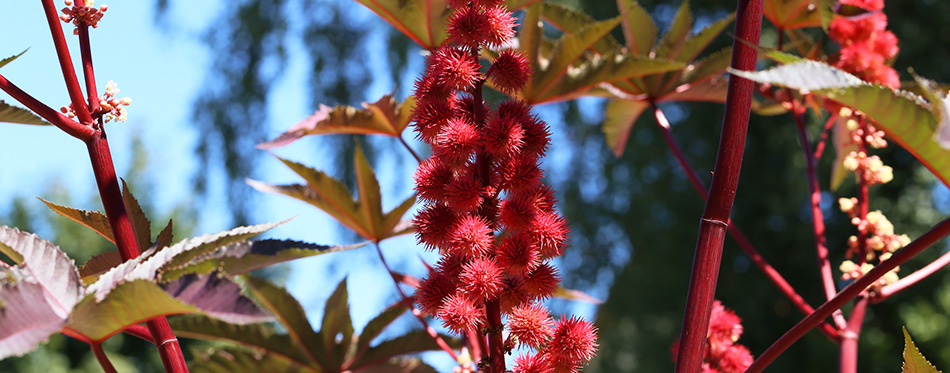
The castor bean is also surprisingly dangerous to dogs. In fact just one or two castor bean seeds can prove fatal. Castor leaves are also dangerous to your dog’s health, but it’s Rosary Peas and seeds that owners should watch out for most of all.
Symptoms of castor bean poisoning vary between animals, but studies show that skin irritation is a common symptom.
Elephant Ears
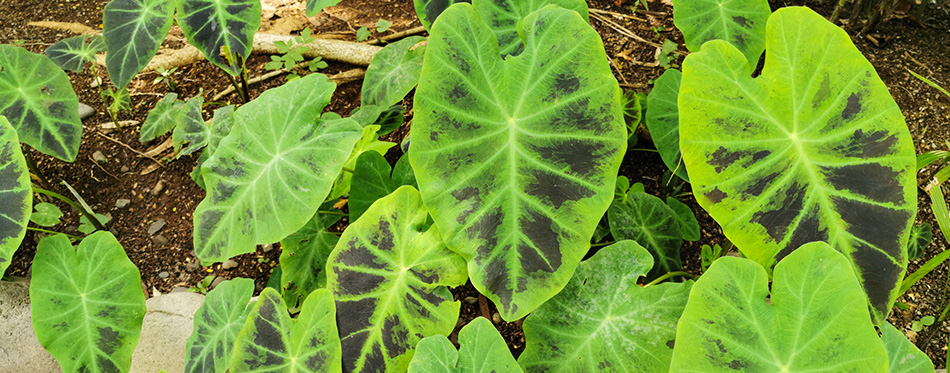
The flowers and leaves of ‘elephant ears’ (Bergenia) are also harmful to dogs. When ingested, this plan can cause intense burning, swelling, and irritation of your dog’s mouth and throat.
This reaction can trigger symptoms like wheezing, panting, lethargy, and excess thirst in your dog. In extreme cases, the air passage swelling can be enough to stop your dog from breathing, and prove fatal.
Lilies
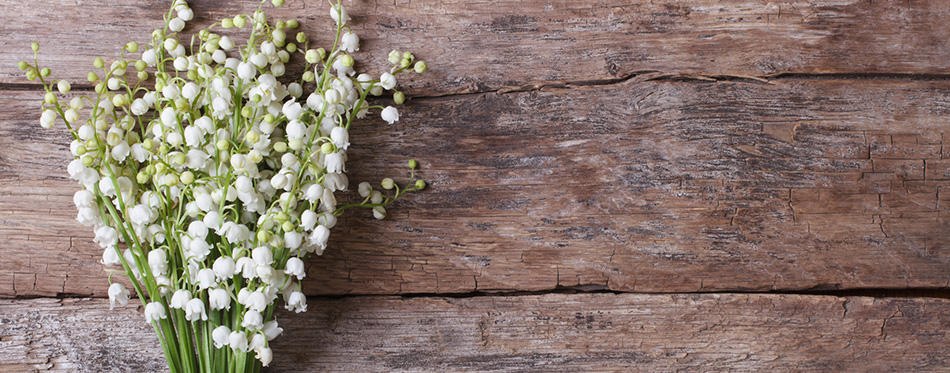
Many varieties of lily also fall into the flowers poisonous to dogs category. These toxic varieties include:
- Calla lily
- Easter lily
- Glory lily
- Leapord lily
- Lily of the valley
- Peace lily
- Peruvian lily
- Tiger lily
Even when consumed in small qualities, the leaves and flowers of lilies can be extremely harmful to your four-legged friend. Symptoms of lily poisoning can vary, but typically include nausea, vomiting, and sometimes skin allergies.
Tulip

The common tulip is also harmful for dogs. Thankfully, it isn’t as dangerous as other plants on this list, and causes mostly mild symptoms unless ingested in bulk.
If your dog eats tulip flowers or leaves, they’ll likely display gastrointestinal symptoms like vomiting and diarrhea. You can support your dog by providing plenty of water, a bland diet, and rest. If symptoms persist or worsen, though, seek your vet’s advice.
Azalea
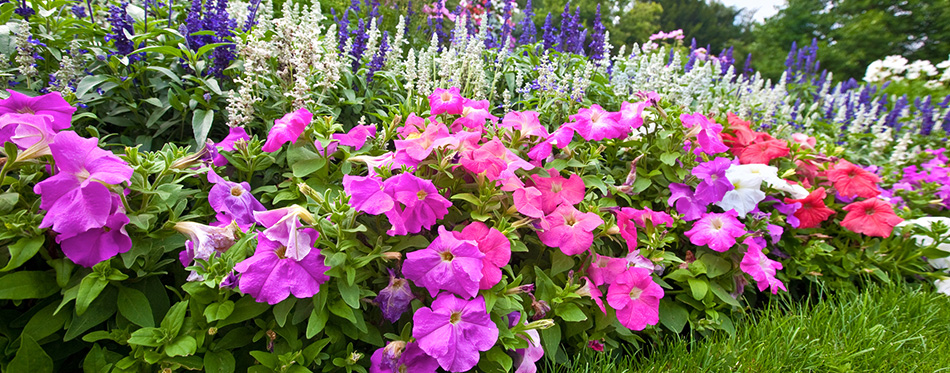
The Azalea bush, also known as rhododenron, is another common plant variety that’s poisonous to dogs.
When any part of the plant is consumed, you can expect common poisoning symptoms like vomiting and nausea to be accompanied by depression, and breathing difficulties. In extreme cases, Azalea poisoning can even cause coma, and when ingested in large quantities it’s sometimes fatal.
Ragwort
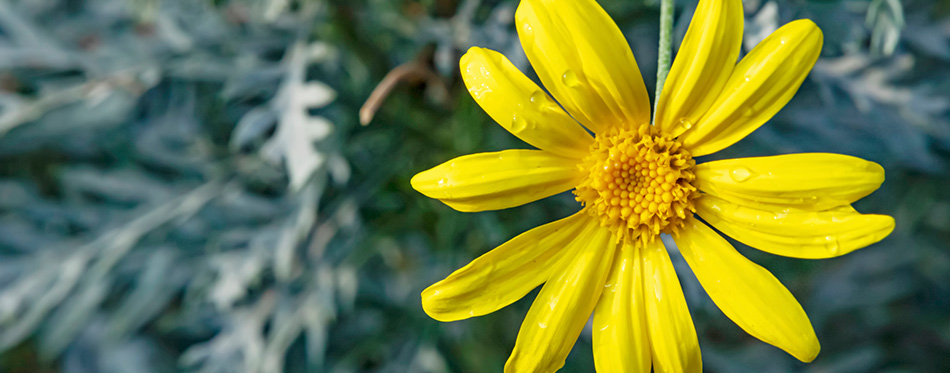
Ragwort is a particularly dangerous plant for dogs to consume because of the irreversible damage it can cause. Even in small doses, ragwort can cause severe kidney and liver damage, which can be fatal when misdiagnosed.
Keep a close eye on your dog if you spot ragwort in your area, and check in with your vet even when exposure is minimal.
Chrysanthemum
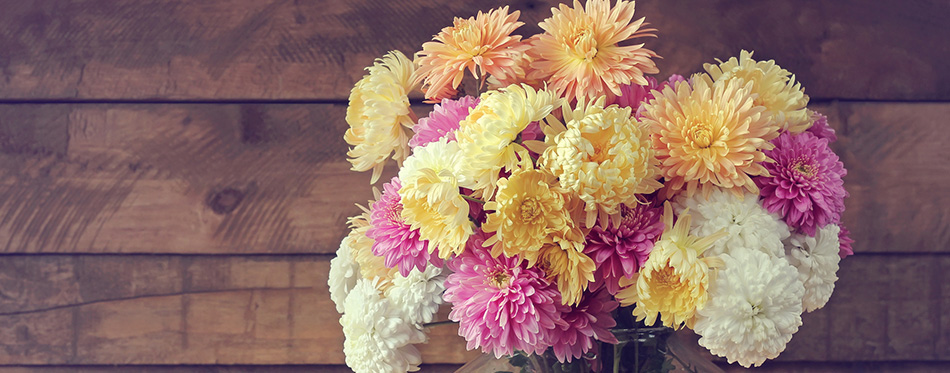
Chrysanthemum is one of the better-known culprits when it comes to plants toxic to dogs, but it bears repeating. If your dog ingests chrysanthemum flowers, they may express gastrointestinal symptoms, as well as skin irritation.
Although chrysanthemum isn’t the most toxic plant on our list, it’s important to seek veterinary advice if you think your dog has ingested some.
Foxgloves
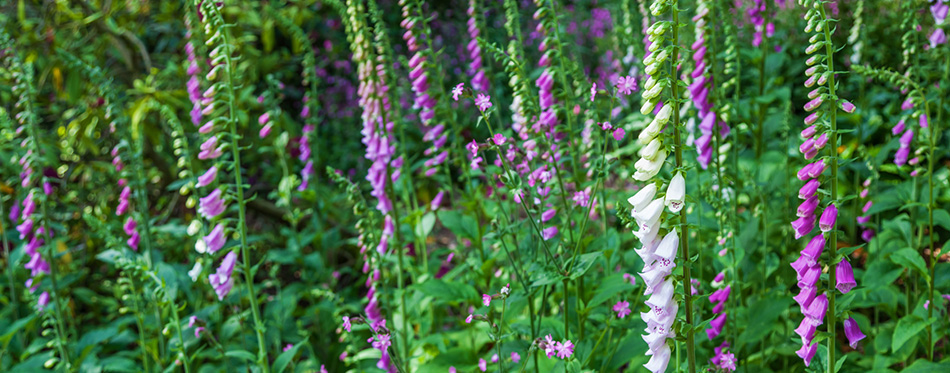
This common wild flower is also poisonous to pooches. If your dog consumes either the leaves or the flowers of the foxglove plant, they may display symptoms like diarrhea, skin irritation, and irritation of the mouth.
Flower Bulbs
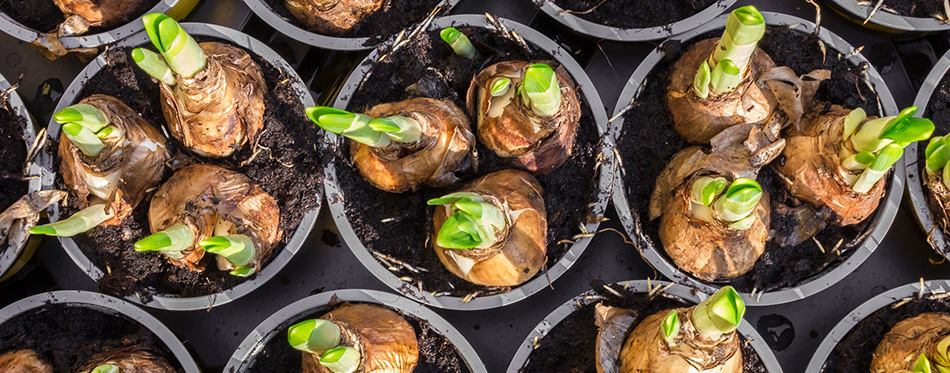
Finally, many types of flower bulb are poisonous to dogs. We’ve already mentioned daffodil bulbs above, but other varieties from the narcissus family are equally likely to harm your pooch.
If your dog has ingested these bulbs, symptoms include nausea, vomiting, and diarrhea. Bulbs can be a particularly insidious poisoner as dogs can unwittingly chew on them when they dig.
Keeping Your Dog Safe From Harmful Substances
Bear in mind that while these plants are common, this list isn’t comprehensive. If you’re ever in doubt over whether a substance is safe for your dog, ask your vet for their opinion. Many other plants are harmful for dogs, too, and which ones your pooch might be exposed to will vary depending on where you live.
If your dog displays any of the poisoning symptoms listed above, contact your vet as soon as possible. If treated quickly, your dog can often make a full recovery from a poisoning incident.
First Aid for Dog Poisoning
If you think your dog has ingested one of the plants above, act as quickly as possible to provide first aid.
You should:
- Call your vet as soon as possible, describing any symptoms as well as the breed age, and sex of your dog.
- Follow your vet’s advice as closely as possible.
- On the way to the vet’s office, keep a close eye on your dog and try to keep them calm.
- Provide your dog with water.
- In their recovery period, avoid feeding your dog many fats or proteins to avoid putting extra strain on the liver and kidneys. These organs are also responsible for removing toxins from the body. For more options, check out our detailed review of the best dog first aid kit.
Sources:
- Poisonous Plants – ASPCA
- Protect Your Pooch from Poisonous Plants – AKC

